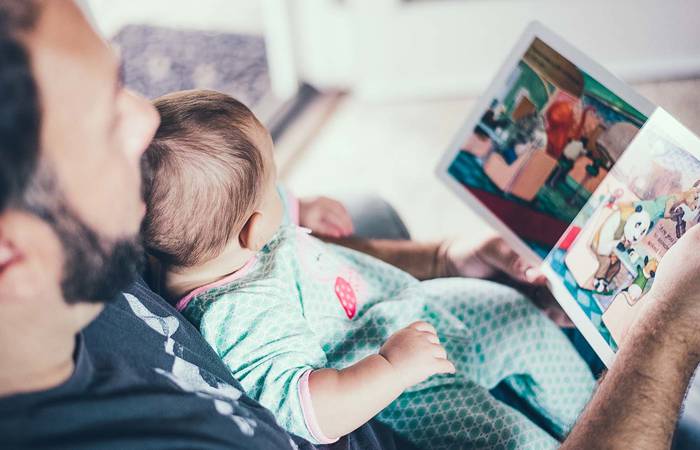Like what you see?
Sign up to receive more free parenting advice.
Thank you for subscribing to our newsletter!
Early Learning

Credit: iStock.com/bogdankosanovic
Many children have a favourite book that they require you to read with them, over and over again and even the most wonderful book can wear out its welcome under those conditions.
It may help to know that rhyme, rhythm and repetition are a vital part of your child’s learning journey.
Children’s books also help introduce very young readers to words they might not hear in everyday conversation – words such as ‘giraffe’ or ‘eagle.’
Head of Education at Murdoch University, Dr Susan Ledger says it’s important that children are exposed to the rich sophisticated language of the world around us.
She says reading aloud provides opportunities for increased language exposure, fosters achievement in language, and develops spelling and vocabulary.
“Young children have no difficulty talking about the names of dinosaurs or characteristics of superheroes. Children love to be taken on an enjoyable journey into books that are too hard for them to read independently. It extends their vocabulary and develops their listening skills,” Dr Ledger says.
“Books provide a window to a world that they cannot access as beginning readers. Language development requires introduction and application, so parents can pick one or two new or novel words to practice in context after reading a book. This way it becomes part of everyday language.”
Familiarity is another important reason why kids enjoy having the same books read to them over and over again. and Dr Ledger says rhyme, rhythm and repetition are essential for the development of language.
“Australian author Mem Fox is a great advocate of developing the affective domain of reading. Nurturing ‘a love of reading’ should go hand in hand with the development of reading skills,” Dr Ledger says.
The age of a child will have an impact on the rate at which they can learn and remember information from shared book-reading.
“Memory development is age specific as younger children need longer to encode information than older children and they forget faster. Repeated exposure helps children remember patterns, novel words and connect key concepts,” says Dr Ledger.
“Repetition also aids learning from different perspectives and elements of the experience. Change what you view or focus on if you get tired of reading the same text.
“Get children to join you in expressing elements. Substitute patterns to challenge your children or relate the story to real events, but keep it enjoyable and interesting.”
As adults, we know that you might read a complex book and, if you read it again, it allows you to absorb all the different elements over time. It’s true for children too. Not only do children love having the familiarity of their favourite books but the repetition is so valuable.Dr Elizabeth Westrupp
Stay up to date with the latest news and articles from First Five Years
Thank you for subscribing to our newsletter!
A Wollongong University study (Ledger & Merga (2017) highlighted the important role of schools in supporting children to read aloud as many were missing out at home due to the time pressures some families find themselves under.
Dr Elizabeth Westrupp, clinical psychologist from Deakin University says it’s not just about reading words on the page; what’s also important is sparking conversation with your child.
“You might be looking at the pictures and talking about what they see, or the ideas the book is covering. It’s all about being exposed to some new vocabulary and learning new words and interaction,” Dr Westrupp says.
“It’s a good idea to have a ‘turn taking’ interaction with your child, so they’re learning new grammar and hearing new sounds. It’s a lovely way to expose kids to a variety of language.
“When you’re learning anything, you need to repeat the experience because, each time, you might be getting something different from it.
“As adults, we know that you might read a complex book and, if you read it again, it allows you to absorb all the different elements over time. It’s true for children too. Not only do children love having the familiarity of their favourite books but the repetition is so valuable.
“Anyone learning something new will find it more helpful if we have something familiar to us, so that not everything is completely new, which can be uncomfortable.
“Children can benefit from reading the same books over and over again because they can learn to expect and predict what’s coming next and that can be quite enjoyable for them.”
Dr Westrupp also says sometimes books can be a useful tool as a stimulus for us to talk about things we might not normally talk about.
When it comes to choosing books, Dr Westrupp advises parents to not over-think it – find a book with nice pictures and a story you’ll both enjoy.
“You don’t have to think too deeply about which book will be the best book to read with your child. Of course, you can’t always predict the books your child will enjoy but, as long as they’re exposed to language, and it’s written well, then that’s enough. If you’re reading a few books a day then that is great.”







